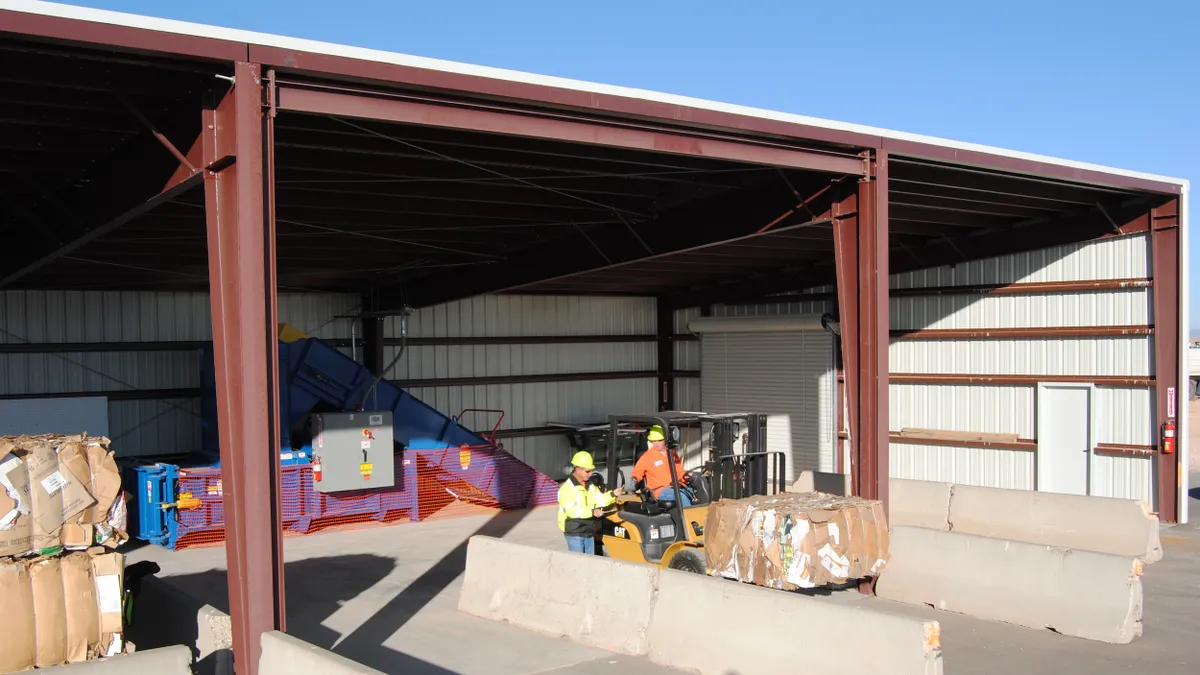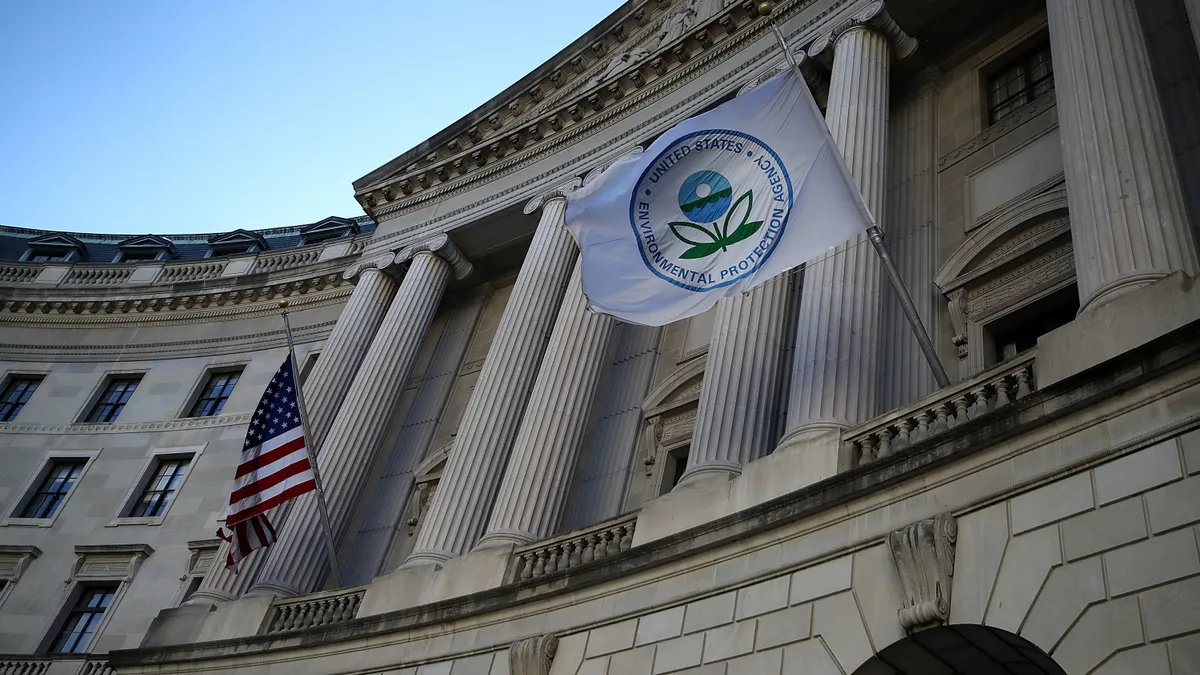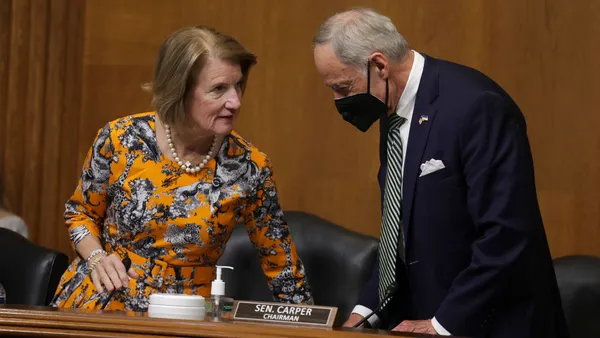Dive Brief:
- Fresh off a trip to China, multiple members of the Institute of Scrap Recycling Industries (ISRI) leadership team said it's still unknown whether rumors of a Chinese import ban on scrap commodities will come to fruition and how quickly it might be implemented. This ban would be different than the current "National Sword" crackdown on container smuggling that has already been affecting some scrap imports, according to a June 13 call with trade press.
- Based on circulated rumors — that the Chinese government would not confirm or deny — ISRI has heard that this ban could be phased in over a multi-year timeframe starting as soon as January 2018. Materials such as plastic and mixed metals may be affected first, with higher value categories such as fiber not coming until later.
- ISRI officials were unsuccessful in their efforts to obtain a meeting with China's Ministry of Environmental Protection during the recent trip, which could be due to a recent leadership change. They have been engaged in discussions with China’s General Administration of Quality Supervision, Inspection and Quarantine, both the Chinese and U.S. embassies in each country and federal officials in Washington, D.C. More concrete information from China could be coming in early July.
Dive Insight:
This year's National Sword campaign has already captured the industry's attention and affected fiber prices. While attending the Bureau of International Recycling convention in Hong Kong last month, the ISRI team began to hear talk of a different and much more severe import ban. According to their sources the first mention of this came in an April trade article and no official motivation has been specified.
"The focus does not seem to be on problem imports. It seems to be on problems with processing in country," said ISRI President Robin Wiener. "There has been an effort on the part of the Chinese to speed up the production or generation of scrap within the country and there is a rumor that this is just an effort to further accelerate domestic generation of scrap."
Yet by many accounts the quality of scrap commodities coming from the U.S. is still higher than what the Chinese are producing domestically and such a shift may not be in their best interests. ISRI's team said they hope U.S. trade officials can help make that case, but they are also bracing for a bad outcome. In addition to engaging with Chinese and U.S. officials, ISRI has also been talking to the European Commission because the E.U. is the second-largest supplier of scrap commodities to China.
"We’re taking these rumors very seriously, just to anticipate the worst so that we can be prepared and our members can be prepared for that," said Adina Renee Adler, ISRI's senior director of government and international affairs, during the call.
ISRI doesn't directly influence markets, though they did note some members have already been exploring possibilities in other parts of the world that may have an appetite for scrap that China no longer wants. India, Pakistan, Bangladesh, Vietnam and Thailand were all mentioned as possible growth areas.
As the industry has experienced in recent years the most subtle shifts can have lasting effects on bottom lines, domestic processing opportunities and municipal recycling programs. Even if new markets may be available, a Chinese ban could have drastic effects on the estimated $28 billion of economic activity generated by scrap exports in the U.S. While President Trump's proposed budget cuts have been taken as an affront by some in the recycling sector, the industry's job creation and economic benefits may help persuade him otherwise. When asked how the administration was responding to the potential ban, ISRI said they seemed to recognize its consequences.
"We’re talking about $5.6 billion in trade and potentially affecting tens of thousands of jobs and the closure of facilities here in the U.S. if a complete ban goes into effect," said Wiener. "So from every indication I have this is something they're taking seriously."












